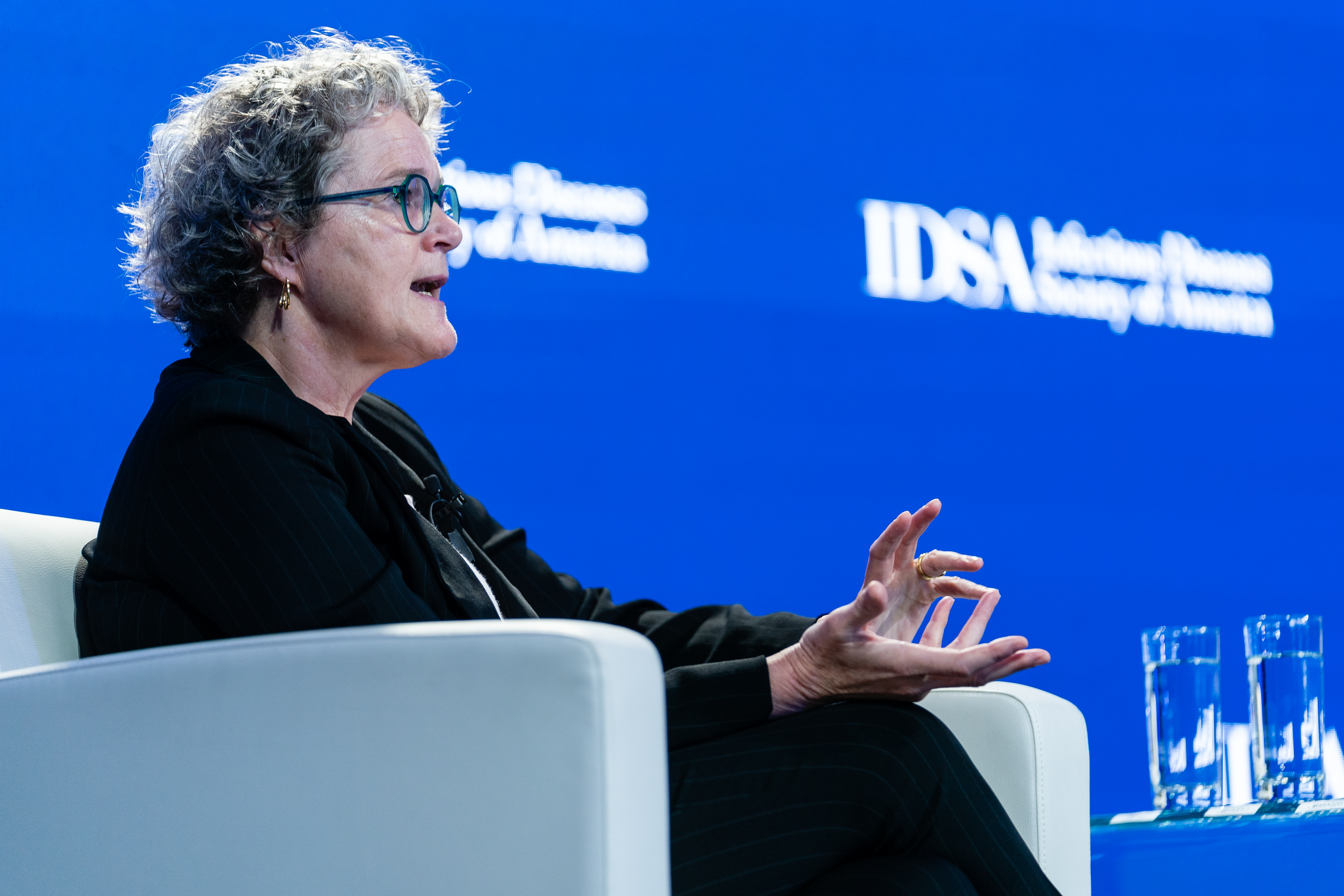IDSA Treasurer: ID specialists are critical to the health preparedness workforce but need support
Facebook Twitter LinkedIn EmailInfectious diseases doctors are unique in terms of the wide range of pathogens they prevent, research, diagnose and treat, and the critical parts they play across different health care settings and areas of public health. But nearly 80% of U.S. counties don’t have a single ID physician, and the majority of communities, especially in rural areas, have little or no access to ID experts.
You might say they’re a bit like unicorns, as IDSA Treasurer Jeanne Marrazzo, MD, MPH, FIDSA, suggested during a conversation on the health preparedness workforce earlier this month in Washington, D.C. IDSA partnered with Axios for the event, which focused on how health care providers, federal agencies and policymakers can bolster the health workforce and improve pandemic preparedness.
For an in-person and virtual audience, Dr. Marrazzo described what ID physicians do and their key role in the health care system, including highly specialized care that supports medical advances like transplants and chemotherapy for cancer treatment, in addition to their work responding to COVID-19 and other disease outbreaks. She also highlighted several current challenges in recruiting more ID specialists to the field and policy solutions that can help, including:
- Targeted loan repayment for ID and emergency preparedness health care professionals who work in health professional shortage areas, medically underserved communities, federal health facilities like VA clinics, or Ryan White-funded clinics.
- Addressing compensation for ID physicians to ensure it reflects the value they provide to patients, hospitals, health systems, payers and other medical professions.
Despite the vital role they play, ID physicians are paid less than almost every other medical specialty, even though ID physicians often work longer hours and have more nonclinical and administrative responsibilities. Medical professionals average nearly $250,000 in educational debt.
“You may have heard about the Bio-Preparedness Workforce Pilot Program, which was actually passed as a law as part of the PREVENT Pandemics Act in 2002,” Dr. Marrazzo said. “However, that still needs to be funded by the Senate and House Appropriations committees. It’s a really important effort, because it will help people repay those loans — there are provisions for loan forgiveness. It really signals to people how critical they are and how important they are going to be to our ability to prevent and treat infectious diseases.”
On the compensation front, one part of the solution would be a reevaluation by the Centers for Medicare and Medicaid Services of the agency’s inpatient evaluation and management reimbursement codes to reflect the level of care that ID experts provide.
“I can sell [the ID specialty] to anybody, but sadly what I can’t do is ensure that everyone is paid as well as they should be, that they won't suffer burnout and that they can repay their loans,” said Dr. Marrazzo, drawing on her experience as an ID physician, professor of medicine and director of the Division of Infectious Diseases at the University of Alabama at Birmingham. “The reality is that not all doctors are paid the same. Infectious disease doctors are actually paid among the lowest of any other category.”
The D.C. event also included conversations with Sen. Tina Smith (D-MN), HRSA Administrator Carole Johnson and India Medley, PhD, MSN, RN, CPNP-PC, vice president and chief nursing officer at Howard University Hospital.
Watch a video recording of the one-hour event. Dr. Marrazzo’s segment begins at approximately 18 minutes into the recording.
Photo credit: Eric Lee on behalf of Axios



